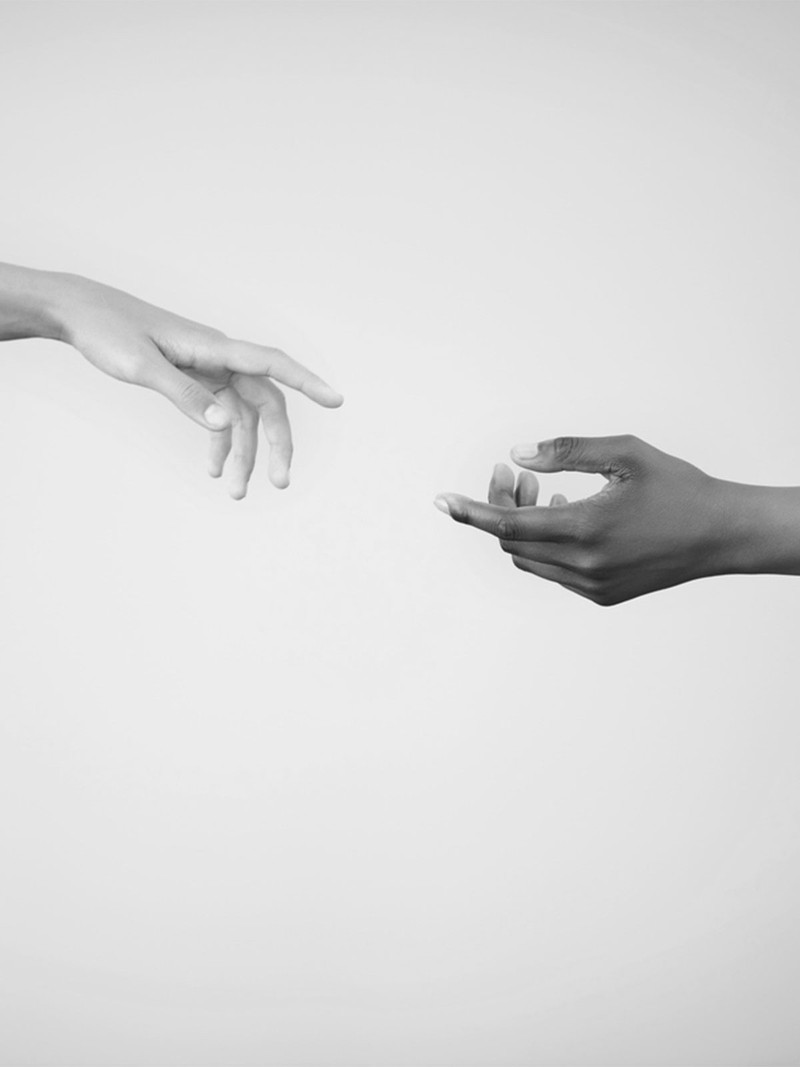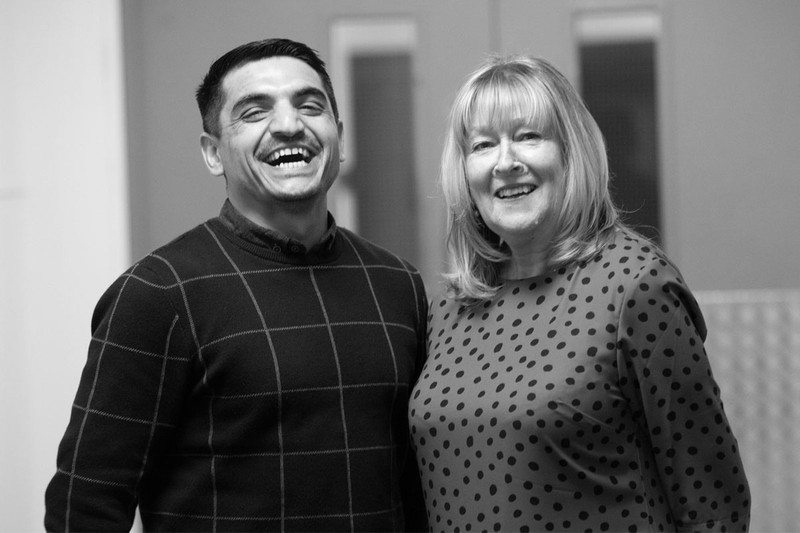
An Inspiring Woman Tells Us Her Story In Honour Of Refugee Week
An advert in Metro first gave me the idea of being a foster carer. At the time I was working for the bus company in Bristol and we always got a copy. There was an advert for an open day at National Fostering Group and I thought it was something I could do. I went along and was immediately interested. I haven’t got any biological children of my own but have always been close to my nephews and stepson, so I thought I could foster.
I was a little apprehensive when I was told my first foster placement would be an unaccompanied asylum seeker. But I spoke to a brilliant social worker at National Fostering Group and I explained I was a bit nervous. One of my main apprehensions was not knowing whether he would have a problem with Christmas, as Christmas has always been a big thing in my house. I spoke to the supervising social worker about whether he might have a problem with this, and she explained that it would be unlikely he would have a problem with being given a present. I also decided to do a bit of research on Islam before he came so that I could understand the culture more.
When I first met Aizat, I remember feeling a mix of nerves and quiet determination. I’d done all the preparation I could but there’s only so much you can prepare for emotionally. I could tell he was just as unsure as I was. I just focused on being calm and kind, showing him around the house. I think we were both trying to make it feel normal, even though we knew it wasn’t just yet. But there was something reassuring about those first few moments. You just think, right, we’ll take it one step at a time.
Surprisingly, it was really easy to find common ground. He had a few questions about things that Christians believe in, but I found that the Islam teachings are very similar – it is about respect for others. There is definitely a negative stereotype towards Islam in this country – like all religions, some people will twist it. At first there was also a bit of a language barrier, but he was going to a mainstream school and picked up English quickly.
Understanding another person’s culture doesn’t come from reading a book – it comes from sharing a meal, having a conversation, laughing at the same TV show. There were things I got wrong at first, but Aizat was patient with me, and we learned from each other. What surprised me most was how many things we actually had in common – a love of family, of good food and of feeling like you belong somewhere.
There wasn’t really a breakthrough moment in our relationship. It was more something that developed gradually over time. He was a fanatical cricket player and I got him involved in a local cricket club. At the time, he was probably the only non-white player, but the other kids didn’t care about this; they only cared about how good he was at the sport and because he was good, they loved him.
One of the biggest lessons I’ve learned is that you don’t need to have all the answers – you just need to show up and care. Aizat didn’t expect me to fix everything; he just needed consistency and someone who would listen. Sometimes, it was the little things that seemed to matter most – remembering what snacks he liked, showing up to school events, giving him space when he needed it. Over time, those small acts built trust, and that trust became the foundation of everything else.
Fostering a child from a Muslim country helped me understand the traditions and culture. I found that there is quite a lot of negative press and stereotypes towards people of a certain culture here in the UK. Sometimes, it’s only if you’re able to connect with someone in the way that I was that you can truly appreciate who they are as a person. If you don’t have anything to do with people who have come from that background, then it may be harder to understand.
There were moments of doubt along the way. I remember wondering whether he felt safe, whether he missed home, whether he felt like he could trust me. It wasn’t about saying the perfect thing – it was about just being there. Gradually, those quiet moments turned into chats about school, cricket, and eventually, deeper conversations about his past. That’s when I knew we were building something real – not just a placement, but a relationship.
What also really helped was receiving fantastic support from my supervising social worker at National Fostering Group. She already knew Aizat before he stayed with me, and she told me that she thought he would be a great fit for me. I continue to go to support meetings and groups, and it’s great being able to speak to people in similar situations.
Seeing Aizat go to university was a very proud moment for me. We went to an open evening at Bristol University after the school he was studying at suggested he go. The school thought really highly of him and this inspired him to apply. He became such a positive role model, especially for young people who were in a similar position to him.
I still see Aizat quite often now. He lives around the corner and we regularly catch up. Aizat was really keen to give back to the community and it was a very proud moment when he decided to become a foster carer too. I thought it was a good idea because he had the mentality to do it. Because he’s now teaching at a sixth form college, he’s currently taking a break from fostering but watching him become a foster carer was certainly a full circle moment for me.
Even now, when I see Aizat teaching and supporting others, I feel an enormous sense of pride – not just for what he’s achieved, but for the kind of person he’s become. He once told me that being fostered gave him the stability to dream bigger, and that really stayed with me. It’s easy to feel powerless in the face of everything going on in the world, but fostering an asylum seeker reminded me that change doesn’t always have to be grand – sometimes it’s just one person helping another to feel safe, seen and supported– and that, I think, is more powerful than we realise.
I won’t pretend it hasn’t been upsetting at times to hear the way people talk about asylum seekers. There’s so much fear and misinformation out there – headlines that strip away the humanity and paint people like Aizat as a problem rather than a person. When you live alongside someone, when you hear their story firsthand and see their hopes for the future, it becomes impossible to ignore how wrong those stereotypes are. It makes me feel protective, not just of Aizat, but of every young person who arrives here needing safety and understanding.
Sometimes I think people forget that behind every asylum claim is a young person who’s lost something – their home, their family, their sense of safety. I’ve seen the courage it takes to start again in a new country, to learn a new language, and to try and fit into a place that often feels suspicious of your presence. It breaks my heart to think of how many young people don’t get the chance Aizat did. That’s why I believe so strongly in fostering, because it’s a way of saying: you matter, you’re welcome here, and we see your potential – not just your past.
What’s stayed with me most is how fostering challenged the way I see the world – and myself. It opened my eyes to different experiences, different struggles and also different strengths. I used to think fostering was about giving to someone else, but in truth, it gave so much back to me. It taught me patience, resilience and the importance of meeting people where they are. If more people could see what I’ve seen – the quiet determination, the hope, the potential – I think they’d realise that fostering isn’t just about helping a child, it’s about building a more compassionate world, one relationship at a time.
Looking back, I realise how much I’ve grown. Fostering Aizat didn’t just change his life — it changed mine, too. I used to see myself as quite ordinary, just going about my day job and living quietly. But fostering made me realise I had something valuable to offer — stability, patience, and care. There’s a quiet confidence that comes from knowing you’ve made a difference, even if it wasn’t always easy. I learned to be more open-minded, more curious, and less quick to assume.
If you’re considering fostering or taking in an asylum seeker but feeling hesitant, just go and have a chat – you don’t have to commit yourself. I didn’t know it would be for me until I spoke to National Fostering Group. It’s important that we do all we can to get the word out there about how we can help.
Visit NFA.co.uk
Refugee Week (16th-22nd June 2025) is the world’s largest arts and culture festival celebrating the contributions, creativity and resilience of refugees and people seeking sanctuary. The theme is Community as a Superpower. For regular updates, news and opportunities, sign up to the newsletter or keep up with events on social media.
Interested in joining the movement? Here are three ways to take part:
- Support Your Local Community: Find out what's happening in your area by filtering previous events by location on the Refugee Week calendar or searching the contacts list.
- Do A Simple Act: from reading a book to watching a film, discover the 2025 Simple Acts
- Organise Your Own Event/Activity. Here is some inspiration and you can also upload your event to the public Refugee Week events calendar.
Enver Solomon, CEO Of The Refugee Council & Co-Chair Of Refugee Week Says…
“Every day, ordinary people in towns and cities across the UK play a vital role helping women, men and children who have escaped war and persecution to rebuild their lives and participate fully in their communities. At a time when division and hostility can dominate the headlines, this year, the Refugee Week theme ‘Community as a Superpower’ is a celebration of connection, compassion and a powerful reminder of the extraordinary strength we find in standing together. Now in its 27th year, Refugee Week continues to grow as a positive force for change. With more than 15,000 events and activities planned, the festival remains a vital celebration of arts, culture, sport and education – bringing people together across backgrounds and borders.”
Visit RefugeeWeek.org.uk
DISCLAIMER: We endeavour to always credit the correct original source of every image we use. If you think a credit may be incorrect, please contact us at info@sheerluxe.com.


